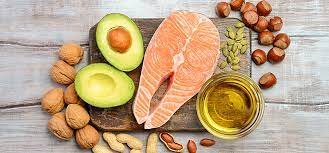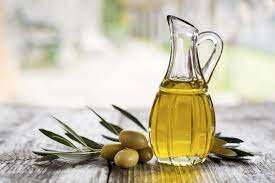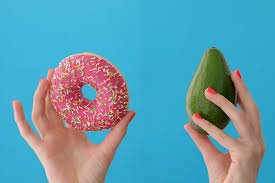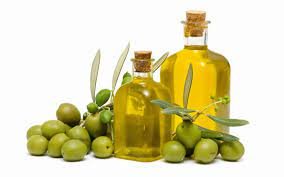WE'VE BEEN MISLED FOR DECADES... FATS ARE GOOD FOR YOU!!
I can't stress it enough but Dairy Fat and Olive Oil Are Your Friends! I've been saying this for years. A really good article was posted by one of my favorite podcasts and online resources- the people's pharmacy. Here are some excerpts from it:
Do you avoid saturated fat? Not surprising! The AHA tells you to shun dairy fat! Olive oil contains 14% sat-fat. Why is it so good for you?
Dairy Fat and Olive Oil Are Friends, Not Foes
A variety of dairy products including cheese, milk and yogurt.
Do you remember your high school biology class? You learned that there are three building blocks of nutrition: proteins, carbohydrates and fats. For decades, fat has gotten a bad rap. We were told that fat would make us fat and clog our coronary arteries. That’s why people continue to buy low-fat or no-fat yogurt and choose skim or 2% milk over whole milk. Cream in your coffee…forget about it! Did the nutrition experts and cardiologists get it wrong? Are olive oil and dairy fat actually beneficial? The data contradict the old wisdom.
It’s NOT Your Fault!
Do not feel bad that you bought into the fat-free food fanaticism. The experts were telling you that fat was the enemy. What is disappointing, however, is that organizations like the American Heart Association (AHA) still insist that you should be avoiding dairy fat.
According to AHA you are supposed to substitute fruited nonfat yogurt or sherbet for dessert. The trouble with such desserts or snacks is that they are high in carbs in the form of sugar! We now know that sugar may be a bigger problem than dairy fat.
Avoiding a Heart Attack:
Climb into the time machine with me for a moment. Were we to visit the 1970s and 1980s we would likely hear messages about substituting hydrogenated vegetable oils for dairy fat. Butter was bad and margarine was good because it had no cholesterol.
Speaking of cholesterol, eggs were out! A “healthy” breakfast would have been pancakes with a glob of margarine and a big splash of syrup: no cholesterol and loaded with sugar and white flour. Waffles would also have been considered heart healthy. Ditto sugary cereal with skim milk or low-fat yogurt with jam at the bottom of the cup.
Trans Fats vs. Dairy Fat:
Today we know that hydrogenated vegetable oils (trans fats) were a terrible idea. Substituting hydrogenated margarine for butter probably caused more heart attacks than it prevented.
There is increasing evidence that a low-fat diet may not be as heart protective as doctors once imagined. But old habits die hard.
The Guardian (Oct. 9, 2015) offers these stats:
“Between 1975 and 2014, sales of whole fat milk have decreased by nearly 61%, while sales of 2% milk have increased nearly 106%. Sales of 1% and skim milk have increased by around 170% and 156%, respectively, according to data from the USDA.”
The Pros and Cons of Dairy Fat:
Despite the AHA’s admonition to avoid dairy fat and saturated fat, here is some science dating back more than a decade:
An article in the American Journal of Clinical Nutrition (March, 2010) provides a shot across the bow of the AHA.
The authors analyzed data over 5-23 years involving 347,747 subjects:
“Results: During 5-23 y of follow-up of 347,747 subjects, 11,006 developed CHD [coronary heart disease] or stroke. Intake of saturated fat was not associated with an increased risk of CHD, stroke, or CVD [cardiovascular disease].
“Conclusions: A meta-analysis of prospective epidemiologic studies showed that there is no significant evidence for concluding that dietary saturated fat is associated with an increased risk of CHD or CVD.”
In 2012 researchers published a study of “the consumption of dairy fat and high-fat dairy foods, obesity, and cardiometabolic disease” (European Journal of Nutrition, July 19, 2012):
“Results: In 11 of 16 studies, high-fat dairy intake was inversely associated with measures of adiposity. Studies examining the relationship between high-fat dairy consumption and metabolic health reported either an inverse or no association. Studies investigating the connection between high-fat dairy intake and diabetes or cardiovascular disease incidence were inconsistent.
“Conclusions: The observational evidence does not support the hypothesis that dairy fat or high-fat dairy foods contribute to obesity or cardiometabolic risk, and suggests that high-fat dairy consumption within typical dietary patterns is inversely associated with obesity risk.”
I apologize for being obvious man. Inverse means that eating dairy fat did not make people fat. If anything, it was associated with less obesity.
That message was reinforced by this study published in the Scandinavian Journal of Primary Health Care (June, 2013):
“Conclusion: A high intake of dairy fat was associated with a lower risk of central obesity and a low dairy fat intake was associated with a higher risk of central obesity.”
These results were confirmed in the Luxembourg Study (Nutrition Research, Nov. 2014):
“Participants in the highest tertile of whole-fat dairy intakes (milk, cheese, yogurt) had significantly lower odds for being obese; abdominal obesity, compared with those in the lowest intake tertile, after full adjustment for demographic, lifestyle, dietary, and cardiovascular risk factor variables. Increasing consumption of dairy foods may have the potential to lower the prevalence of global and abdominal obesity.”
Saturated Fat and Heart Disease:
In 2014, a study was published in the highly regarded Annals of Internal Medicine (March 18, 2014). The authors reviewed 72 studies. There were more than 600,000 participants in these studies:
The conclusions challenged the AHA’s attack on dairy fat and love affair with polyunsaturated fatty acids. Those are the fats found in vegetable oils like safflower oil, peanut oil and sunflower oil.
The investigators wrote:
“Conclusion: Current evidence does not clearly support cardiovascular guidelines that encourage high consumption of polyunsaturated fatty acids and low consumption of total saturated fats.”
You can read more about this study and other recent studies that contradict the AHA at this link:
Has the Flip-Flop on Saturated Fat Made Your Head Spin?
Saturated Fat vs. High-Carb Foods:
Remember how we suggested that the old “heart-healthy” breakfast of pancakes, waffles or sugary cereals was worse than a breakfast high in dairy fat? The PURE (Prospective Urban Rural Epidemiology) study collected dietary data from 135,000 people. It confirmed this concept.
After seven years, the people who followed a high-carb diet were more likely to have died or developed health problems than those consuming a high sat-fat diet. Read about this and other contradictory data at this link:
Just How Scary Is Saturated Fat?
What About Olive Oil?
By now you have heard that adding olive oil to the diet benefits the heart. Did you know that olive oil is 14% saturated fat? The low-fat gurus continue to insist that olive oil is unhealthy.
The latest study challenges them, however. It was published in one of the preeminent heart publications, the Journal of the American College of Cardiology (January 18, 2022).
In the Nurses’ Health Study, 60,582 women completed questionnaires about their diets, their activities and their health every few years between 1990 and 2018. During the same time frame, the Health Professionals Follow-up Study collected that information from 31,801 men.
In total, 36,856 of these 92,383 volunteers died in the course of the study. People consuming more olive oil were less likely to die, even after adjusting for age. By comparing the extremes–people who ate the most olive oil to those who ate the least–the investigators determined that olive oil lovers were 19 percent less likely to die of heart disease.
How Much Olive Oil Is Heart Healthy?
Those at the highest level of consumption were getting at least 7 grams of olive oil daily. How much, you may wonder, is that? It turns out that a tablespoon of olive oil comes in just under 14 grams, so 7 grams is a bit more than half a tablespoon.
Besides cardiovascular health, people eating more olive oil were also less likely to die of cancer (17 percent), neurodegenerative disease (29 percent) or respiratory disease (18 percent). The scientists calculated whether people would benefit by substituting olive oil for margarine, butter or other dairy fat. They suggest that olive oil is more healthful than animal fats.
More Support for Olive Oil:
This is not the first study to conclude that olive oil can help heart health. One famous trial was known as PREDIMED (New England Journal of Medicine, June 21, 2018). In it, more than 7,000 Spaniards at high risk of heart disease were asked to follow three specific diets for nearly five years.
One group followed a Mediterranean-style diet rich in vegetables, fish and legumes, to which they added four tablespoons of extra-virgin olive oil daily. Another group also consumed a Mediterranean diet, but instead of olive oil, they added an ounce of almonds or hazelnuts to their daily fare. The third group served as a control and followed a low-fat cardiologist-recommended diet to the best of their ability.
People in both the olive oil and the nut dietary groups were significantly less likely to have a heart attack, stroke or death from a cardiovascular cause. In addition, women in the olive oil group were less likely to be diagnosed with breast cancer (JAMA Internal Medicine, Nov. 2015).
Final Words:
If olive oil and a Mediterranean diet were pills, doctors would prescribe them for everyone and the drug companies would charge a lot of money. And when I say a lot of money I mean thousands of dollars a month! Instead, you can help yourself to health at your local grocery store or farmers’ market by eating real food.





